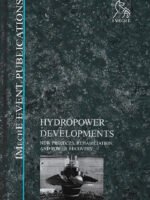Title 26 of the Code of Federal Regulations (CFR), specifically Parts 50-299, covers a wide range of regulations related to Internal Revenue and taxation in the United States. This segment of Title 26 focuses on detailed rules and guidelines issued by the Internal Revenue Service (IRS), under the authority of the Department of the Treasury.
Here are some key areas typically covered in Parts 50-299 of Title 26:
- Income Taxes: Regulations governing the calculation and reporting of income taxes for individuals, businesses (including corporations and partnerships), estates, and trusts.
- Estate and Gift Taxes: Rules related to the taxation of estates and gifts, including exemptions, deductions, and valuation of assets.
- Excise Taxes: Regulations concerning taxes imposed on specific goods, services, and activities such as alcohol, tobacco, gasoline, and various other commodities and activities.
- Employment Taxes: Guidelines for employers on withholding, reporting, and paying Social Security, Medicare, and federal income taxes on wages paid to employees.
- Procedures and Administration: Procedures for filing tax returns, claiming refunds, audits, appeals, collections, penalties, and judicial proceedings related to tax matters.
These regulations are crucial for taxpayers, tax professionals, and businesses to understand their rights and responsibilities under federal tax laws. They provide clarity and guidance on how to comply with the Internal Revenue Code (IRC) and ensure accurate reporting and payment of taxes to the federal government.









Be the first to review “Code of Federal Regulations, Title 26 Internal Revenue50-299, 2023”